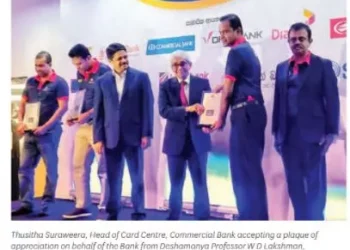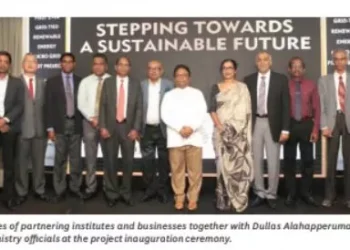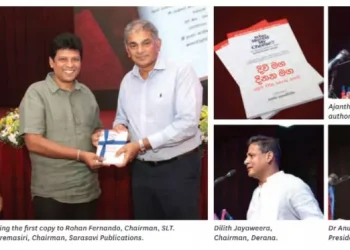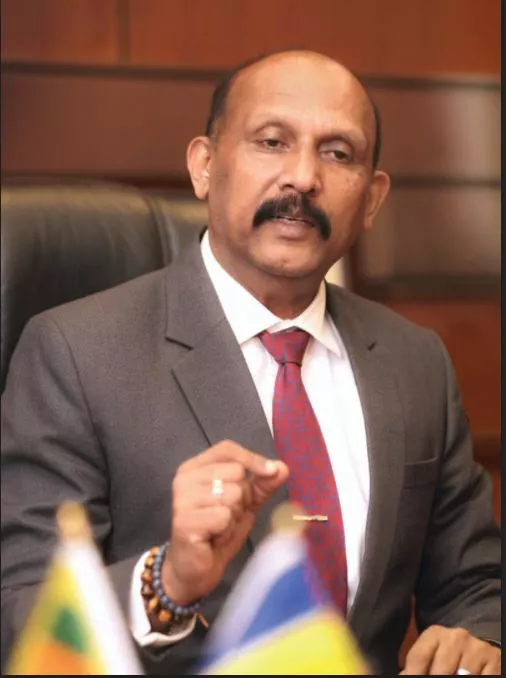
Secretary of Defence, Maj Gen (Retd) Kamal Gunaratne ensures the country that a secure and stable environment has been established. He emphasized that the Government led by President Gotabaya Rajapaksa has given priority to national security thus, ensuring all areas of concerns are monitored continuously. The Secretary of Defence affirms that the Ministry and its under-command organizations will do their duty to provide protection, security and stability to the citizens. Maj Gen (Retd) Kamal Gunaratne is a war veteran and he speaks about the sacrifices made by the Armed Forces to ensure that Sri Lanka has peace and stability. He says that the due respect should be given to the Armed Forces so that they and their families can live with pride and dignity.
By Udeshi Amarasinghe.
Photography Menaka Aravinda.
Can you describe the current security situation in the country?
We can give an assurance to the people of this country that the current situation is good and stable. That does not mean that every single problem has been solved. There are issues but since we have the knowledge, experience and the mechanism to address these issues we can give the assurance that the situation is stable.
In the election manifesto of Mr Gotabaya Rajapaksa, ‘Vistas of Prosperity and Splendour’, he has given prominence to a few subjects, out of which the main focus has been given to National Security. Unless otherwise you ensure National Security of the country, there is no forward march. Whether it is a developed, powerful, rich or poor country or an intermediate country, no country can progress or march forward without ensuring its National Security. At the same time, the economy of the country is also to be considered as a very important aspect. To strengthen the economy, you need investors and investments; you require professionals, and experts in each and every field. If National Security is not at a high level no investor or investment will come to the country, and there will be no forward march. Furthermore, professionals will leave the country and there will be a brain drain as we have experienced before. They will seek more lucrative opportunities abroad, where there is stability for their families, and to give a better education for their children. We have problems with our higher education system because either the universities are closed, or the students are on strike on the roads and there are numerous issues over ragging, which is the major problem in the universities as per the present context. Other than the Sir John Kotelawala Defence University (KDU), if you send your child to any other university you cannot have any expectation as to when your child is going to graduate. But at the KDU, you know when your child enters the university and exactly when they are going to graduate as well. People who have migrated will not consider coming back to Sri Lanka unless the situation is stable. Therefore, National Security is very important.
National Security is the sole responsibility of the Ministry of Defence, and the other stake holder organizations under its command. The Ministry of Defence comes under the direction of His Excellency the President Gotabaya Rajapaksa; and myself as the Secretary Defence, which has many other organizations under its purview. Even the Archaeological Department reports to the Ministry of Defence. There is a reason as to why it is so.
Our prime responsibility is ensuring National Security for our motherland and to ensure the protection, safety and security of our citizens and our future generations. If you take the entire spectrum of National Security, there are many areas involved. Terrorism; we were suffering from the menace of terrorism for more than 30 years and owing to the exemplary leadership of the Fifth Executive President, Hon Mahinda Rajapaksa and the Seventh Executive President, His Excellency Gotabaya Rajapaksa, Tri-Services, Police and Civil Security Department we established peace in this country by defeating the LTTE. As of now, we enjoy absolute peace, but I should tell you that though we managed to defeat or eradicate terrorism, we have not been able to wipe out ‘separatism’ from our country. These are two different words. However, separatism ideology still prevails. Within Sri Lanka, the Eelam concept has been downgraded to a separatist ideology. However, there is a possibility that terrorism may come up as an off-shoot of separatism. Therefore, we have to be prepared. The 30-year conflict was a result of not taking the right decisions at the right time. Personally, I am an individual who has sacrificed my entire youth, fighting the terrorists inside jungles in the North and East. We do not want to see our children or our future generations suffer like how we suffered. Therefore, we are keeping our eyes and ears very open and being fully aware of the responsibilities at our hands.
Also, it is very disappointing to mention about the previous Government, the so called ‘Yahapalanaya’ Government. They were ruling this country for about four and a half years and we are fully aware of what happened at the end. When someone takes the matters related to National Security for granted this is the ultimate result; more than 290 innocent citizens of our country had to perish in vain. More than 500 innocent citizens, irrespective of their age, gender, nationality or religion were admitted to hospitals; more than 100 children suffered and will continue to suffer for life.Terrorism is one thing and fundamentalism is another. As at now, we are facing religious fundamentalism. It is a very sad situation; these people have misinterpreted one of the greatest religions in this world. They started all these activities, in 2011, 2012, 2013 and I still remember that then Secretary of Defence Mr Gotabaya Rajapaksa sent back plane loads of clerics, preachers, and hundreds of people who had come to Sri Lanka to radicalize our innocent youth of the Islamic Faith. There was much criticism leveled against him but he still took the necessary steps and the radicals could not revert back until such time as they did on Easter Sunday in 2019.
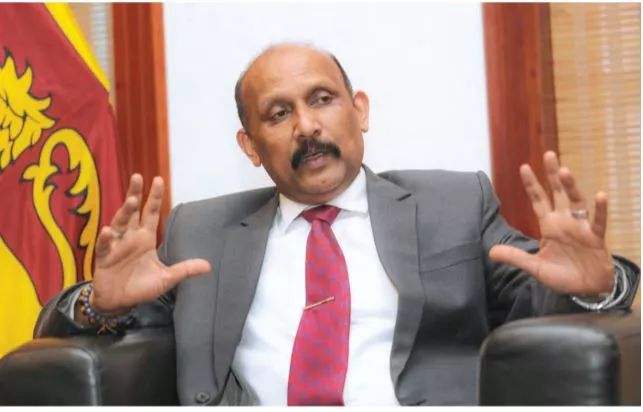
On the other hand, the international Tamil Diaspora remains very active. Certain sections of the Tamil Diaspora want an ‘Eelam’ rule to be established in the Northern part of the country. As they were unable to achieve their aims with the bullet, they are trying to obtain this through other means. Their approach today is to get support from the international community. They are very well organized and their fund raising mechanisms are still active. Whatever the LTTE used to spend on arms and ammunition, they are now spending on a different kind of warfare. It is not an asymmetric warfare; it is a different type of warfare based on propaganda. They have reached some politicians from powerful countries, where certain electorates cannot be won without the support of the Tamil vote. They have identified those constituencies and have embarked on a successful program. We have to keep our eyes and ears open against such developments. They have attempted so many times to resurrect the remnants of the LTTE during the comprehensive rehabilitation process that was conducted by the Government of Sri Lanka. We rehabilitated 12,242 ex-combatants in total and released them to the society through the re-integration process. They are living in the society amongst you and me without any problems. The Tamil Diaspora is pumping funds to re-initiate the mechanism. But so far they have failed owing to our efficient intelligence operations.
During the Yahapalanaya Government, our entire intelligence network was in disarray. The Government attacked some of the Intelligence apparatuses, accused with false allegations against some good officers and men, who have done an enormous service to this country and its people. Thus, after a certain period of time, their efficiency dropped, and there was no output. As soon as I assumed duties as the Secretary of Defence, His Excellency Gotabaya Rajapaksa who had been the Secretary of Defence five years ago instructed me to re-organize the intelligence machinery. I brought all the Intelligence Organizations under one umbrella, which is the Ministry of Defence; irrespective of their respective service, color of their uniform or political affiliations. Now we are well united and focused on a common goal. I have made certain changes some are drastic too. There is no point in having Intelligence Services unless otherwise they can ensure the protection, safety and security of the people of a country. All these Intelligence Organizations were there during the Yahapalanaya Government. What was the ultimate outcome? When you are given the responsibility of the lives of the people of a country, irrespective of their age, gender, religion or ethnic group, you have to be very serious and you cannot take things for granted. We are not taking things for granted, we are very serious about matters related to National Security and we work day and night to protect the country from separatism and fundamentalism. We are very well organized and there are many intelligence operations that are in place as of today.
The next threat is from various groups who are responsible for various illegal undertakings. There are many types of groups; some of them are armed as well. Even in Jaffna, Mullaitivu, and Kilinochchi there are such activities. We have taken actions to curb all these illegal groups and their activities. We are also taking actions against organized crimes and the drug menace. But I firmly believe that there is more to be done. In terms of organized crimes, people who lead these criminal activities who are called the ‘underworld’ are connected with the drug trade as well. Therefore, we are required to take certain drastic measures to control these illegal activities. All in all when you look back as to how we functioned during the past five years, there is a drastic improvement today as the Secretary of Defence. I can confidently assure the people of this country that they are safe and we are doing everything to ensure their safety and security.
As you mentioned there are many other organizations that come under the purview of the Ministry of Defence. Can you elaborate on the plans that are in place to maintain the stabil- ity and security of the country?
We have developed an extensive road map, and there are certain sensitive/confidential areas that I cannot disclose. But in a nutshell if I tell you about our plans, we have reorganized the intelligence organizations, also the Tri- Forces, and the Police, they are able to handle any attempts on terrorism, or to re-energize the LTTE elements within their capabilities. When it comes to fundamentalism, there are 200-300 inmates suspected for the same who are in prison for the time being. Those who have taken part in extreme criminal activities will be tried in courts and they will have to accept respective punishments if they have been found guilty. There are many others who have attended one or two classes, or a few lectures on Islamic fundamentalism. Whatever said and done it is to be considered that they are our children. Therefore, we have to have a comprehensive rehabilitation process same as we did for the LTTE. After the comprehensive rehabilitation process, all these individuals will be released to the society through a re- integration process.
When the underworld activities and drug menace are concerned, His Excellency the President Gotabaya Rajapaksa has appointed me as the Chairman of one of the Presidential Task Forces to establish a good society for the people to live in peace; namely the Presidential Task Force to establish a secure country, disciplined and virtuous society. With respect to this particular Task Force, we have already engaged in a great amount of work. I am in charge of the prisons as well. The prisons and its officials come under the purview of the Prisons Department. At present, there are more than 30,000 prison inmates within the system. We are the authorities responsible to apprehend them and try them in courts, and it is according to the courts’ decision/directive that they would be sent to the prisons to serve their respective sentences. It is my belief that if we did not handle it this way there would not be any effective results for these problems. The prisons are overflowing with drug addicts, if you consider the drug addicts most of them are of very young age. Therefore, there has to be a comprehensive rehabilitation process for these individuals. We are going to construct 20 buildings with skilled labor from the Tri-Forces, in Weeravila Prison,where it will be able to accommodate 200 individuals. We are going to construct another four number of two-story buildings in Pallansena Prison, which can accommodate nearly 600 individuals. In addition to that at Kandakadu we can accommodate around 1,500 more. The National Dangerous Control Board also comes under the purview of the Ministry of Defence. With its involvement, we are constructing another facility in Nittambuwa called Nava Diganthaya. Here too, we will be able to accommodate another 1,000 individuals. Similarly, we will be able to rehabilitate the individuals and release them to the society again at the completion of the rehabilitation process. There is a group of people who has been identified as the most dangerous and corrupt criminals and we have converted the Boossa prison to a ‘maximum security prison’, where those highly dangerous inmates have been moved to the Boossa prison. Also we have taken up necessary measures to fix telephone jammers and applied many other security methods so that they cannot make any telephone calls from Boossa Prison. Without making telephone calls they cannot operate their drug operations or their gangs for organized crimes.
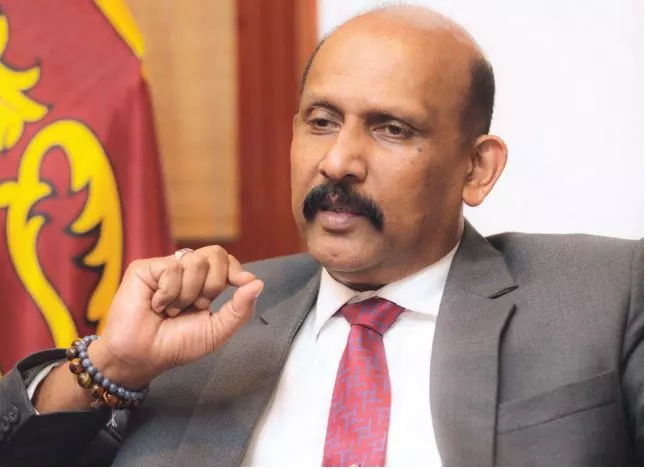
Equally, we have a very large road map ahead of us and we have been successful so far. If you consider the feelings or the sentiments of the people of this country, they are very happy with H E the President, Government, the Ministry of Defence and the work that I am doing. I am very confident that one day, not that far in the future, we should be able to declare that we have succeeded in all aspects related to security.
The Archeology Department also comes under the purview of the Ministry of Defence. Why is that?
I have been appointed as the Chairman of another Presidential Task Force, to preserve and secure the archeological heritage sites in the Eastern Province. If you look at the archeological map of Sri Lanka, you will see many ruins and archeological sites in the Eastern province. It is very disheartening to say that most of these sacred places have been destroyed and very little is remaining intact. We need to establish a mechanism to preserve and secure our heritage for future generations. We boast about King Dutugemunu, King Parakramabahu and King Mahasen, why? Because we can see with our own eyes what they have done and how they have served the people of this country.
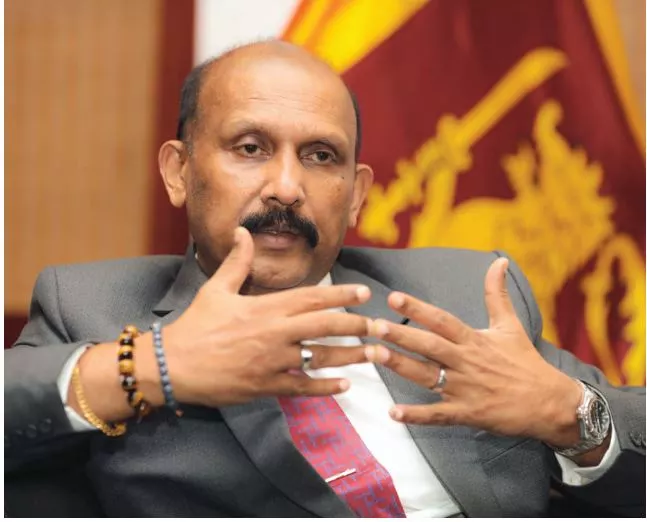
Generations after generations have benefited from what they have done without any modern technology. We should give our future generations also a chance to be proud of their ancestors. The Archeological Department came under the Cultural Ministry at a certain time, then another Ministry at another time. It is due to the lack of resources and motivation these archeological sites have not been safeguarded.We all love our country and our heritage; therefore we have to protect our ancient archeological sites. When it comes to protecting the archeological sites, number one priority becomes the preservation of the available sites. Number two priority is that we have to restore the destroyed or damaged sites. Number three priority is that we have to ensure the security of those sites so that no one will be able to destroy or damage those valuable heritage sites in our country.
The Archeological Department on its own cannot do that. The Ministry of Defence, has the Army, Navy, Air Force, Police, and also the Civil Security Department under its purview. We have the know-how, the strength and the resources. Therefore, it is a matter of delegating the responsibility of a certain area so that the Commander of that area will ensure the safety and security of those archeological sites. That is the idea behind placing the Archeological Department under the Ministry of Defence. There was a question as to the members of the Presidential Task Force being all Buddhists. This question was asked by many people including the American Ambassador. When you consider the ancient ruins in the Eastern Province, not a single Christian, Hindu or Islamic monument or shrine or archeological site has been destroyed; it is only the Buddhist archeological sites that have been destroyed. In order to preserve these places, you should have individuals who have the desire to protect these sites with their hearts. Irrespective of the religion, any complaint that is received, which states that an archeological site of a particular religion is under threat/danger we will take all measures to attend those as a priority. I can assure that as the Chairman of the Task Force.
Safeguarding the country during pandemics and natural disasters are also a part of the responsibilities of the Ministry of Defence. Can you elaborate on this?
Ministry of Defence is responsible for the safety and security of the people in the country. Natural disasters such as tsunamis, floods, and landslides are apparently falling under the purview of National Security as these are hazardous for people. Likewise, if there is any pandemic situation affecting Sri Lanka and when the community is threatened, it is again a matter related to National Security. With the COVID-19 situation, we started our mechanism well before the pandemic even appeared in Sri Lanka. On January 26th this year, H E the President identified the potential threat. We had a meeting at the Presidential Secretariat and H E the President said that in case the pandemic is to appear in Sri Lanka we have to be ready. He started the mechanism that day. Then, on January 28th the first patient was recorded. Forty-eight hours before the first patient was detected, H E the President Gotabaya Rajapaksa took the bold decision to form the Presidential Task Force. The Chinese national that was detected was admitted to IDH and once she recovered she left the country. During the entire month of February not a single patient was recorded, however we were ready to take up the challenge for a possible outburst during the monsoon period. Then on March 8th the first patient within Sri Lanka was reported.
March 11th the second patient was recorded. Then the numbers started to increase. By then we had the mechanism in place. The virus was running a race. Even the rich and powerful countries had to kneel down in front of the virus, but us being a developing country did not kneel down in front of the virus; we could stand upright and face the challenge. People were asking us the secret behind our success, because only 13 people have lost their lives to date and most of them were suffering from other ailments. Even the representatives of powerful countries asked how we achieved this success. I must say that it was the correct employment of troops, and qualified individuals under different authorities.
We had to identify the vulnerable areas; our intelligence sources were crucial in identifying where the virus was heading to. We had to stay one step ahead of the virus and reach the potential individuals before it did. By the time the virus reached the potential individuals we had the entire area under a very comprehensive lockdown process. Or we may have adopted the root ball system where we root balled the entire area and took them to a quarantine center far away. We were able to get the situation under control. The reason as to why the powerful countries failed and we have succeeded is that the powerful countries were only depending on the health authorities. Their health systems are much more advanced and developed than ours. But still they could not cope up with the influx of COVID-19 patients. Under the guidance of H E the President Gotabaya Rajapaksa, we mustered all the resources we had, Tri-Forces, Police, Civil Security Department, Public Administration and Health Department, everyone aligned with the mechanism and it was a collective effort. No one can claim the lion share, of course the Tri-Forces did a tremendous job, they also had to make many sacrifices to make this effort a success.
Once the first wave was diminishing and the number of patients in hospitals came down to 102, all of a sudden a patient was reported from Welikada Prison. From the quarantine centers hundreds started coming in. People thought it would be uncontrollable. But we were very confident, we knew we could handle it and we were not disrupted. We tackled the second wave also in style. As at today there are only 16, COVID-19 patients who were found within Sri Lanka, and all others are arrivals from other countries. Within a short period of time, all these people will recover. I believe we have done our part up to the fullest extent.
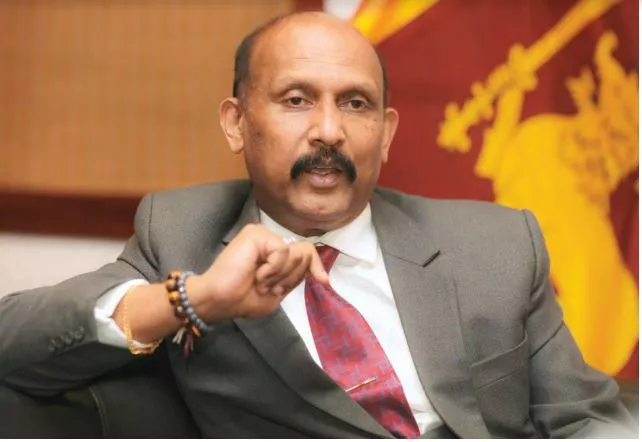
Giving confidence to the private sector, economy in terms of security and stability?
We concluded the 30-year long war on May 19, 2009 and after that under the Fifth Executive President Hon Mahinda Rajapaksa’s governance there was a huge economic boom. There was a considerable development in infrastructure and it went on till 2015. After the so called ‘Yahapalana’ Government came into power, they wanted to disrupt everything that was preserved by the Rajapaksa Government. Further, some good businesses, which had become significant income earners for the country were almost destroyed. Many people lost their jobs and day by day the economic situation was declining. When you go out and look around Colombo, you will see many high rise buildings that have come up, all these buildings came up after the war, during the Fifth Executive President Hon Mahinda Rajapaksa’s term. After that to my knowledge not a single building was constructed.
Why? Because the Yahapalanaya Government could not give a proper economic plan for the investors to arrive. They destroyed the economy and finally they handed over a significantly unsuccessful state to H E the President Gotabaya Rajapaksa. If you look at H E the President Gotabaya Rajapaksa, who was my senior in the Army, is a man with a far-sighted vision. During the previous Government he was at home. But he initiated this mammoth organization called ‘Viyathmaga’, which is an entity of professionals from various fields. He gave the task to ‘Viyathmaga’ professionals, whom he divided into sub groups with assigned areas to do re- search and provide solutions to ensure a future economic boom. That is exactly what ‘Viyathmaga’ did and all these plans are available with him now. He is very confident about his vision and under him we are also very confident that we can make a change in this coun- try. We can assure the National Security and, we can ensure the stability, safety and peace of the country. We can guarantee that good conditions are arranged for the investors to come and invest in Sri Lanka. Many individuals and organizations have started considering such avenues. Unfortunately, owing to this COVID-19 situation, the investment prospects have been temporarily on hold otherwise we would have developed much further as a nation, during this short span of time.
Your experiences in the fight against terrorism?
Throughout my career I was in a fighting regiment. I was wounded twice, where once I was severely wounded. But, I managed to survive. I never wanted to serve in non-operational areas. As soon as I was declared fit for duty or even before that I went back to the operational areas, and I did my part. I was the General Officer Commanding the 53 Division; which is the most powerful division in the Army duing the last stages of the humanitarian operation. It was my Division that found Prabakaran, Soosai, Pottu Amman, Bhanu and Ratnam Master and many other LTTE leaders. It was a long, tiring, and challenging journey. There was a great deal of horror and a sense of isolation. I retired from the service on September 5, 2016. Usually when Generals go home, they go as defeated soldiers. But I went home as a proud, victorious soldier and I am very proud of my service, I am not blowing my own trumpet. I can always be proud of what I have done for my country, its people and its future generations.
I must salute my gallant soldiers, who relentlessly pursued the Nation’s enemy to the desired end. I live with those memories and when I retired, those proud memories kept me going. At the time His Excellency Gotabaya Rajapaksa was elected as the President, he wanted me to come back to the Government Service and that is how I hold this appointment as the Secretary Defence today.
The reason as to why you decided to write books?
While I was serving in the Army, I saw the sacrifices of the soldiers. Who are these soldiers? Most of them are the children of poor parents and families from very rural villages. There was a huge influx of dead bodies of soldiers going into those very villages they came from. Yet those courageous parents told their children, “This is the country’s hour of need, join the Army and fight for your Motherland”.
They came without any hesitation and they fought. Some of them died, some of them became maimed for life, and some of them survived, most of them retired. Those days, I was thinking the amount of pain, which my people had to undergo including myself was unbearable. The most dangerous thing was the sense of isolation; away from the family, you are alone and you have to face a very dangerous enemy armed with sophisticated weapons. That is why I highlight the sense of isolation was harsh; especially at night around two or three in the morning was a dreadful experience. We felt that sense of isolation throughout the times we spent while fighting. But we were able to deliver what the people expected from us.
Since I saw the sacrifices of my people from my own eyes I wanted to write about them so at least I can honor them in that way. Many soldiers under my command are dead and gone; some of them have become permanently disabled and lying in beds maimed for the rest of their lives. Their parents should know what their children have done, their wives should know what their husbands have done and their children should know what their fathers have done. Therefore, I thought I must pen it down. I have never written books before; I thought that this will be the greatest gratitude that I can pay for my people. That is why in all my publications the moment you turn the cover page, there is a photograph of me in my ceremonial regalia saluting with the words, “I salute my gallant soldiers that relentlessly pursued a Nation’s enemy to the desired end.” I have written that in all my books, which are dedicated to all the soldiers that have sacrificed their lives, those who were injured and disabled, those who have become victimized and those with a distinguished service and have retired, and to all the families that have sent their loved one to fight the war. That is the main reason behind why I started writing.
My first book was ‘Road to Nandikadal’, the Sinhala version ‘Rana Maga Ossey Nandikadal’, it has become the best seller so far in Sri Lanka. It is a large book with 874 pages. People were standing in queues for many hours to buy the book. When I saw these things I felt that I had done justice to the soldiers. After writing that book I thought I must write more. I started writing a novel called ‘Kadol Aththu’, based on true incidents. It is the story of a disabled soldier, an amputee to be exact. So far, I have never met anyone who has read the book and not cried. Then I wrote about an LTTE female suicide bomber that I had met during the rehabilitation process and that book is known as ‘Uththara Devi’. Then I wanted to write a different book, I thought of writing a biography. I selected certain characters and I finally decided to write on His Excellency Gotabaya Rajapaksa because he was my senior and I served under him. I wrote about him. I translated this book also into English. Now I am the Secretary Defence and whatever the operations that are taking place against the underworld, drug trafficking, organized crimes, and even the prisons, which come under me, I thought it would be a very pertinent subject to write about. That is the focus area in my recent book ‘Paathalayo’. I have already written seven books and I wish to publish up to 25 books in the future.
Further, we did not have significant War Literature in our country before. It is a subject that is available in other countries and I believe that it should be there in Sri Lanka as well. Some of our retired Generals and Admirals tried to establish that in Sri Lanka. But with the launch of ‘Road to Nandikadal’ the importance of War Literature sky rocketed. Then I decided that I should contribute more to War Literature and that is why I wrote ‘Kadol Aththu’ and ‘Uththara Devi’. I am also a lyricist, where I have written the lyrics for three songs. The first song is by Sashika Nisansala, second song is by Bathiya and Santhush and the third song is by Umaria Sinhawansa. The first song sung by Sashika Nisansala is about a mother whose son had become totally paralyzed due to his injuries at war. It is her words, which are been sung as she looks at her son in the bed at Abhimansala; the name of the song is ‘Sathuru Balamulu’. The second song ‘Sebala Puthu’ by Bathiya and Santhush; it is to create pride in those soldiers who have become disabled and are limited to their beds. I do not ask anyone in this society to pity disable soldiers, they do not want mercy from anyone. What they want is the recognition, pride and respect. Therefore, the song ‘Sebala Puthu’ is to inculcate recognition, pride and respect for the disable soldiers. In the third song, which is sung by Umaria Sinhawansa I have considered a different perspective. If a soldier dies in action his body is brought home and the family is able to express their grief. Thereafter, almsgivings are held and he is remembered every year.
The family that is the parents, wife and children know that their loved one has passed away. Then, when an injured soldier is brought home, the family knows that he cannot be treated or cured any further. They make up their minds. But there is another section in society, which has not received anyone’s attention. That is the families of those who are missing in action. They only receive a message stating that their loved one is missing in action. These families such as the parents, wives and children still look at the road expecting their loved ones to come home. They go to soothsayers and astrologers who continuously give them false hope. It is the sadness of these families especially the wives that is reflected in the song sung by Umaria. That is a section of society that no one thinks about. But I must say that I personally care and grieve for all of them. As the Secretary Defence, I intend to do everything possible for those people.
About yourself?
My father was a School Principal and my mother was teacher. My father was a very tough man to deal with. I would say that he was tougher than me. I’m sure you know the style of olden day Principals. He wore national attire; he was tall like me and dark, and a well-built person. I would say that he was a very good Commander. He did not join the Armed Forces, he was in the education service but I must say he was a real commander, a good leader. I learnt a lot from him. Thanks to my parents I am here today. Unfortunately, they passed away before they could see my success. But they were very proud of me. I still remember them and I miss them. I am married to my loving wife who has given me a beautiful daughter. My daughter has gone abroad for her studies. We have been married for the last 30 years, and we are very happily married and cherish very sweet memories to date.
My message to the people is that we have created a peaceful and safe environment for all to live happily in this country. We will maintain and continuously develop that safe and stable environment. We expect from the people of this country, to always remember that this peace and freedom was achieved due to the sacrifices of the Armed Forces. We should always respect their families and give them the pride and necessary place in the society. We should allow them to live in this society with pride and dignity.


